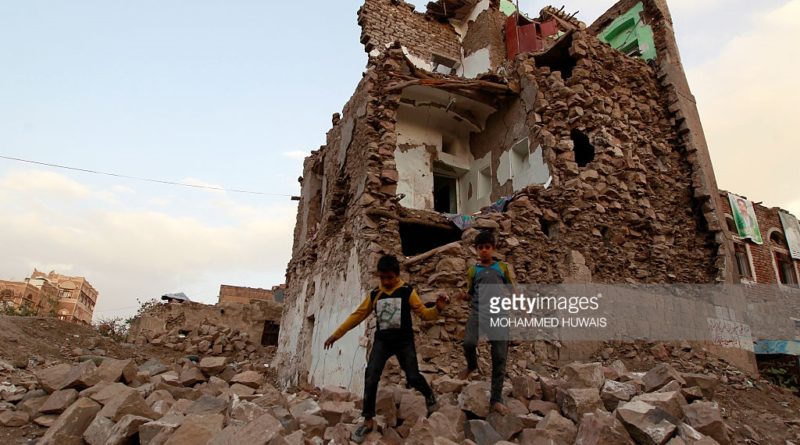Probe U.S. role in Yemeni Civilian deaths during Saudi-Led war
Last year I wrote an Op-ed on Cleveland.com calling for a political solution to the Saudi-led war in Yemen. 18 months have passed since the Saudi-led coalition launched a military campaign against the Houthis, a Zaydi Shiite group of northwestern Yemen, yet the Saudi objective of the war has not been reached: disarming the Houthi rebels and restoring President Abdu Rabbu Mansour Hadi to power throughout Yemen.
The Houthi rebels and the forces allied to Yemen’s former president, Ali Abdalla Salah, who are putting up stiff resistance, have lost some ground especially in southern Yemen, but they still control large swaths of territory including the capital Sana’a. While the Saudi backed un-elected President Rabbu Mansour Hadi controls much of southern Yemen, including the port city of Aden--where a tenuous authority exists at best.
The human cost of the military campaign in Yemen is staggering. Since March 2015, the Yemeni conflict has claimed the lives of 10,000, and over 30,500 are wounded, including civilians.
Nearly 3 million people are displaced from their homes. More than 19 million are without access to clean water and sanitation, and in need of emergency humanitarian assistance. Three million children under 5 are facing severe acute malnutrition, according to the UNICEF.
A naval blockade by the Saudi Navy to prevent weapons are preventing food, medical supplies, fuel and other essentials from reaching Yemen, a country that relies on imports for 90% of its food.
Both sides of the conflict have committed serious violations of international humanitarian law.
While using American supplied bombs, the Saudi-led airstrikes are also targeting medical facilities, schools, factories and open markets, which may “amount to war crimes”, according to the Human Rights Watch.
For example, last month, a Médecins Sans Frontières (Doctors without Borders) supported medical facility in North Yemen was hit by an airstrike, killing 19 people, which forced the group to evacuate staff from the north of the country because there was no guarantee they would not be attacked again.
Tragically, the Obama administration is silent on the killings of civilians in Yemen by the Saudi coalition bombings while vocal at the carnage in Syria caused by the Russian and Syrian governments. The Obama administration is also complicit on the Saudi-led war in Yemen by providing weapons, intelligence and logistics, even though the US congress never authorized such a war.
Weapon sales of the U.S. and Britain to Saudi Arabia are fueling the Yemeni conflict. In fact, last month, the State Department approved the sale 1.5 billion worth of tanks, armored recovery vehicles and other equipment to Saudia Arabia, pending a possible congressional bar to the sale, but such a prohibition is rare , according to Reuters.
Senator Chris Murphy, Democrat from Connecticut, said recently on CNN, “There is an America imprint on every civilian life lost in Yemen.”
Saudi propaganda has stated that the Houthis are “influenced and supported” by the Iranians. The Saudis consider the Houthis as a proxy for Iran. But most experts in the region agree the influence the Iranians have on the Houthis is very unclear or limited. With the Saudi coalition’s complete control of Yemeni airspace and the blockading of its coast, the likelihood that the Iranians are providing the Houthis with military support is very little.
The Saudi-led war in Yemen is a local power and control struggle among Yemeni tribal factions like any other war. During the Arab spring, the Houthis were instrumental in the 2011 uprising that overthrow Yemen’s long time ruling dictator, President Ali Abadalla Salah. A Saudi brokered power sharing government denied the Houthis a role in that government. Consequently, the Houthis with the help of forces loyal to the former President Abdalla took over Sana’a, the capital and other major towns in Yemen.
The Houthis are saying that they are fighting for the political and economic interest of the Zaydis Shiite community of northwestern Yemen, against the unresponsive central government. The Houthis are also countering the Saudi’s extreme ideology of Wahabism spreading into Yemen.
Congress has the power to stop the human tragedy in Yemen. Firstly, when Congress comes back in September they should hold a hearing on the Saudi war in Yemen, the U.S. Involvement, and the supply of lethal weapons to the Saudis. Secondly, Congress must also act now and stop military sales to the Saudis in the light of the indiscriminate bombings of innocent Yemenis by coalition airstrikes.
Those airstrikes are alienating more Yemenis in a time America needs more help defeating Al-Qaida in Arabian Peninsula (AQAP) in Yemen, the most lethal Al-Qaida affiliate, which expanded its influence in Yemen and benefited during the Saudi-led military campaign.
We must put the value of human lives ahead the interest of the Saudi regime, one of the worst human rights violators in the world. America must give peace a chance in Yemen because all Yemenis deserve to live and work in peace.
Ali Mohamed is the co- founder of the Horn of Africa Freedom Foundation, Lewis Center, Ohio. Contact him at aliadm18@gmail.com

